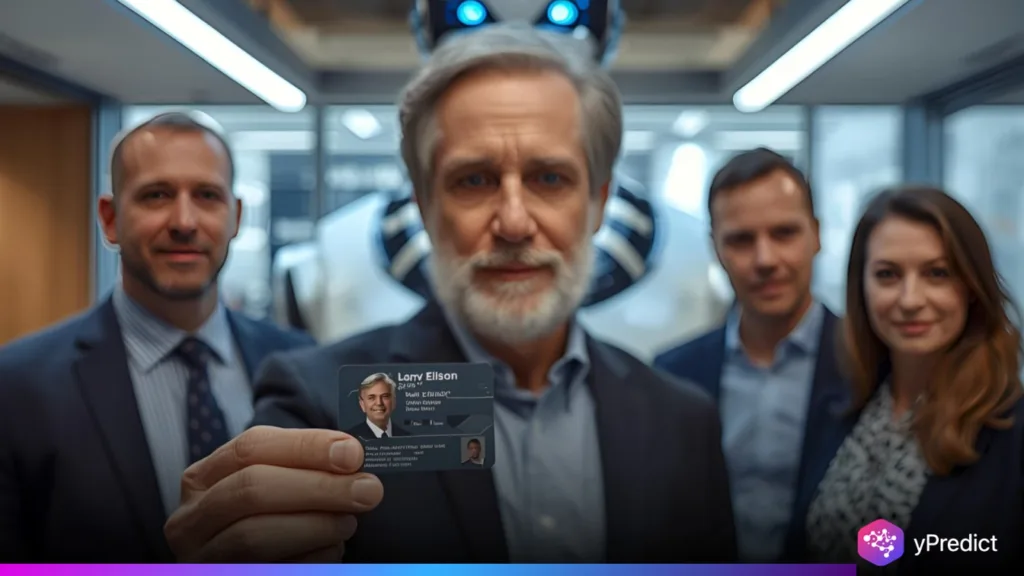
Larry Ellison’s bold vision from Oracle’s CEO persuades ai-driven surveillance as the base for contemporary government, security. His argument is simple—behavior changes when you know you’re being watched. Tracking is everywhere and rating is commonplace. Ellison says this openness promotes accountability. But privacy groups like ACLU smell trouble. They warn this could create a society where all of your actions are monitored. At the 2025 World Governments Summit, Ellison again pushed his message: AI, surveillance, and digital identity will dominate future governance.
AI Surveillance and Policing
Larry Ellison believes body cams and AI surveillance forever will change policing. Officers will hesitate before misbehaving. Citizens, as well, will know that their actions are monitored. He also believes, strangely, that surveillance makes us fairer with each other. He ties this concept to AI video analytics already used by many cities. Video feeds feed algorithms that detect patterns, flag threats, and help law enforcement act faster.
The ACLU pushes back. They see AI monitoring as a two-sided sword. Yes, it may improve safety. But it also builds out an ecosystem where privacy cedes ground. What if, as is increasingly feasible, all of your actions were monitored and measured and logged. AI model errors could also wrongfully accuse. And who controls this data?
Oracle gives weight to this vision. Its software already powers databases for governments and spy agencies. Ellison highlights how bundled platforms enable surveillance. When all cameras, sensors and databases feed into a single AI, the efficiency soars. Decisions get faster. Patterns become clear. To him, the trade-off is worth it. But privacy hawks, they ask, how far is too far. What if openness is complete control? That tension defines today’s debate around AI, policing, and surveillance.
Digital Identity and Governance
Larry Ellison’s spying doesn’t stop there. He sees digital identity as the new frontier. Passwords? Outdated. He loves AI-protected passwords, biometrics and zero-trust architectures. Department of Homeland Security, promotes such models. Before long, every citizen could potentially have a government trusted digital ID in their pocket. This ID would spread across services, verified by AI in realtime. Ellison argues it boosts efficiency. Imagine renewing a passport or accessing healthcare without friction.
But privacy critics worry. Centralized IDs mean centralized monitoring. And when that same system tracks votes, doctor’s visits, trips and purchases — the tracking is deeper. Governments get omniscient insight into daily existence. ACLU warns this risks eroding civil liberties.
Earlier in 2025 at the World Governments Summit, Ellison brought these ideas full circle to unified data platforms. He contended, however, that digital trust must be constructed on complete data connectivity. It becomes powerfully efficient once AI consumes all data — biometrics, habit of purchase and even location information. Oracle’s past with the CIA shows how these databases expand. Ellison’s media ownership interests, from CNN to CBS, magnify such systems. And if Oracle acquires TikTok? The data pool grows even more enormous. The potential is dizzying — an AI-centric governance with Ellison at the helm. Beneficial or dystopian—that’s the open question.
Conclusion
Larry Ellison’s vision blends AI tracking, online identities and selected content. He markets accountability and efficiency and stronger management. Surveillance ensures justice, digital IDs speed access and AI catches trends faster. But the flipside is troubling. Constant observation risks freedom. Centralized data could empower governments versus citizens. With Oracle in the mix, this is anything but hypothetical–it’s really happening. Ellison is both the architect and evangelist for this future. The real challenge? What security is worth trading for privacy. That equilibrium will shape not only the technology but the culture of future society.






